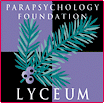 |
 |
| Historian of psychology Serge Nicolas has argued in his Histoire de la Psychologie Française (2002), that the establishment of the international congresses of psychology, were in part a reflection of the activities of other scientific societies, and the indirect result of the very popular universal expositions held during the last quarter of the nineteenth century. Of course one may argue that there was more than that. By 1889 psychology had developed many specialties covering specific areas (e.g., criminal studies, education, psychopathology, psychophysics, therapy) and phenomena (amnesia, automatisms, hallucinations, hypnosis, learning, perception). 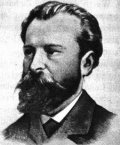 Some psychologists argued for the need to integrate, or at least, share knowledge. This was part of the motivation behind Polish philosopher and psychologist Julian Ochorowicz’s article. In 1881 he published an article in the French journal Revue Philosophique de la France et de l’Étrangere in which he suggested that the further systematic development of psychology could be helped through international congresses similar to those of other disciplines. (The photo to the left is Julian Ochorowicz.) Some psychologists argued for the need to integrate, or at least, share knowledge. This was part of the motivation behind Polish philosopher and psychologist Julian Ochorowicz’s article. In 1881 he published an article in the French journal Revue Philosophique de la France et de l’Étrangere in which he suggested that the further systematic development of psychology could be helped through international congresses similar to those of other disciplines. (The photo to the left is Julian Ochorowicz.)
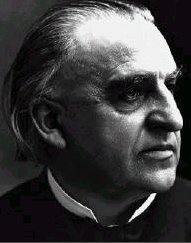 In 1889 several scholars and scientists decided to hold the International Congress of Physiological Psychology in Paris. In 1889 several scholars and scientists decided to hold the International Congress of Physiological Psychology in Paris. 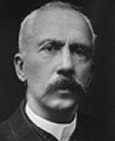 Summaries of the Congress were published by James (1889), Marillier (1889), and A. T. Myers (1889). The meetings took place between August 6th and10th. During the course of the congress the name was changed to the “International Congress of Experimental Psychology.” However, several of the contemporary reports, and the proceedings of the congress (Congrès International, 1890), kept the original name. The President of the congress (although absent throughout the proceedings) was the neurologist Jean-Martin Charcot. Summaries of the Congress were published by James (1889), Marillier (1889), and A. T. Myers (1889). The meetings took place between August 6th and10th. During the course of the congress the name was changed to the “International Congress of Experimental Psychology.” However, several of the contemporary reports, and the proceedings of the congress (Congrès International, 1890), kept the original name. The President of the congress (although absent throughout the proceedings) was the neurologist Jean-Martin Charcot. 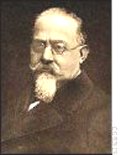 By 1889 Charcot was internationally known for his neurological work, as well as for his work with hysteria. The Vice-Presidents were Jacques J. V. Magnan, Théodule Ribot, and Hippolyte Taine. Physiologist and psychical researcher Charles Richet was the Secretary, and a sponsoring committee included eminent representatives from different countries, such as Francis Galton (England), William James (the United States), Pierre Janet (France), Cesare Lombroso (Italy), and Wilhelm Wundt (Germany). (The gentleman to the left at the top is Jean Martin Charcot. The first gentleman to the right is Charles Richet, and the gentleman just above to the right is Cesare Lombroso.) By 1889 Charcot was internationally known for his neurological work, as well as for his work with hysteria. The Vice-Presidents were Jacques J. V. Magnan, Théodule Ribot, and Hippolyte Taine. Physiologist and psychical researcher Charles Richet was the Secretary, and a sponsoring committee included eminent representatives from different countries, such as Francis Galton (England), William James (the United States), Pierre Janet (France), Cesare Lombroso (Italy), and Wilhelm Wundt (Germany). (The gentleman to the left at the top is Jean Martin Charcot. The first gentleman to the right is Charles Richet, and the gentleman just above to the right is Cesare Lombroso.)
In addition to the individuals I have mentioned, the convention proceedings included a list of attendees several of which contributed to psychical research either before or after the congress. These included: Théodore Flournoy Henri Bourru Prosper Burot Joseph Grasset Jules Héricourt Joseph Jastrow A. A. Liébault Léon Marillier Frederic W. H. Myers Julian Ochorowicz Albert de Rochas Albert F. Schrenck-Notzing Henry Sidgwick Eleanor Sidgwick Congrès International de Psychologie Physiologique [International Congress of Physiological Psychology] (1890). Paris: Bureau de Revues. James, W. (1899). The congress of physiological psychology at Paris. Mind, 14, 614-615. Marillier, L. (1889). Le congrès de psychologie physiologique de 1889 [The 1889 congress of physiological psychology]. Revue Philosophique de la France en de l’Étrangere, 28, 539-546. Myers, A. T. (1889).International Congress of Experimental Psychology. Proceedings of the Society for Psychical Research, 5, 171-182. Nicolas, S. (2002). Histoire de la psychologie française: Naissance d’une nouvelle science. Paris: In Press. Ochorowicz, J. (1881). Projet d’un congrès international de psychologie [Project for an international congress of psychology]. Revue Philosophique de la France en de l’Étrangere, 12, 1-17. |
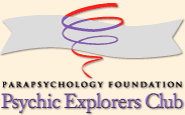 |

|
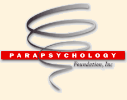 www. parapsychology. org |
||